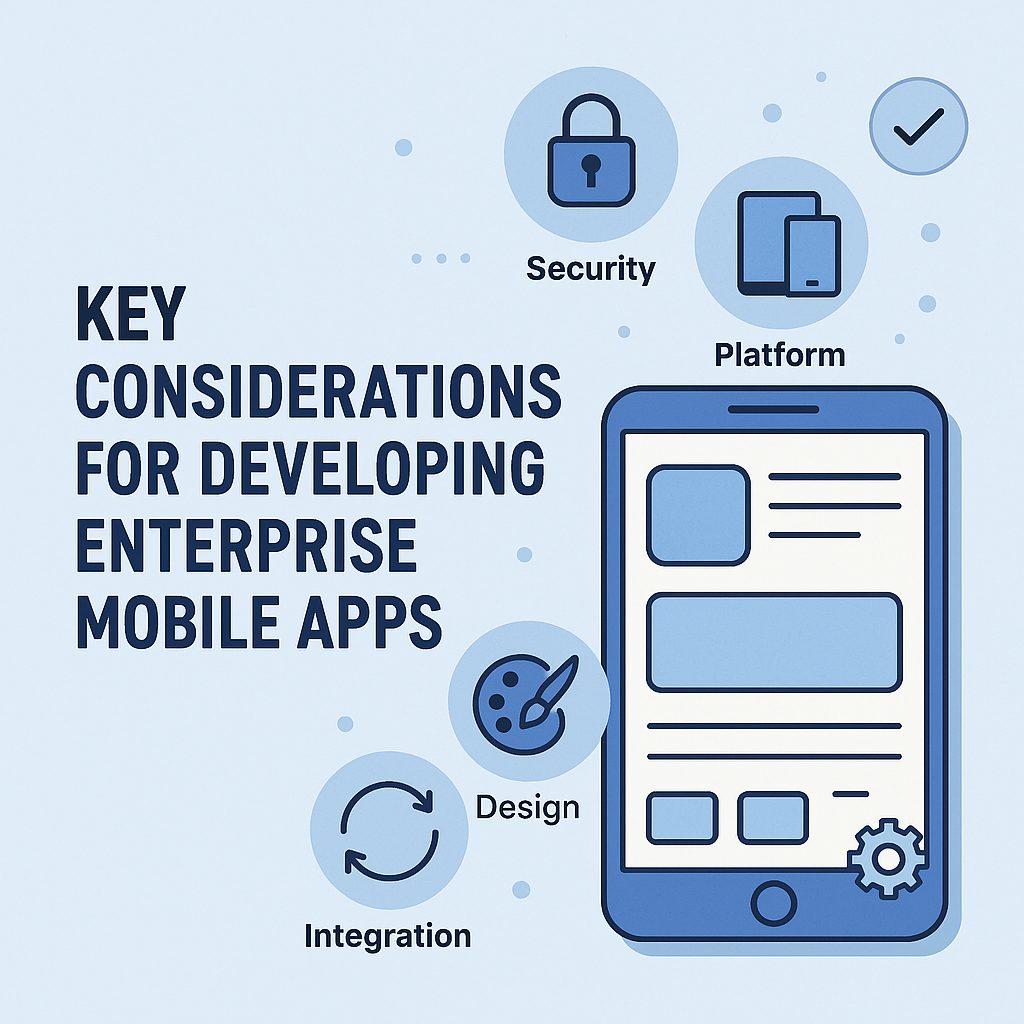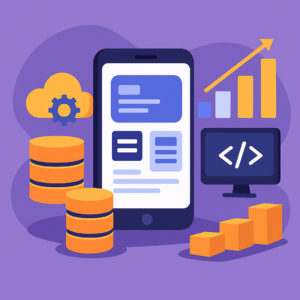With the rapid evolution of mobile technologies, businesses are increasingly investing in mobile applications to boost employee productivity, digitize workflows, and enhance customer experiences. However, developing enterprise mobile apps requires a much more comprehensive approach than building consumer-focused applications — involving security, integration, scalability, and more.
Here are the key factors to consider when developing enterprise mobile applications:
1. Security Comes First
Enterprise apps often handle sensitive data such as customer information, financial records, and internal operations. Therefore:
- In-app data encryption should be implemented,
- Authentication systems like 2FA and SSO must be integrated,
- Mobile Device Management (MDM) policies should be followed,
- API security must be ensured and vulnerabilities regularly tested.
2. Platform Choice: Native or Hybrid?
Will the app run on Android and iOS? Will it connect to a web dashboard? Important questions arise here:
- Native apps (Swift, Kotlin) offer better performance and user experience,
- Hybrid or cross-platform solutions (Flutter, React Native) can reduce development time and costs.
The organization’s budget, target audience, and use cases directly affect this decision.
3. Integration with Enterprise Systems
Enterprise apps typically need to integrate with back-end systems like CRM, ERP, or SAP. For effective integration:
- A well-documented and stable API infrastructure is essential,
- Data synchronization should be real-time or near real-time,
- Versioning and error management must be well planned.
4. User Experience (UX) and Interface (UI) Design
Enterprise apps are often used by employees or clients frequently. A complicated interface can lead to low user adoption.
- Designs should be intuitive and minimalistic,
- User personas must be defined according to the target audience,
- The interface should be easy to use with minimal training required.
5. Offline Functionality
Not all users will have consistent internet access — especially field employees. That’s why:
- The app should support offline mode,
- Automatic data synchronization should occur when connectivity is restored,
- Mechanisms to prevent data loss should be implemented.
6. Testing Processes and DevOps Support
Enterprise apps must be reliable and error-free. Thus:
- Automated testing (unit, UI, integration tests) should be in place,
- CI/CD (Continuous Integration/Continuous Delivery) pipelines must be implemented,
- App versions should be managed properly with detailed changelogs.
7. Scalability and Maintainability
Enterprise apps should not be developed with a “build once, use forever” mindset. Planning for the future is essential.
- The codebase should be clean and maintainable,
- Modular architecture should allow new features to be added easily,
- Performance monitoring and logging should be built-in.
8. User Support and Feedback Mechanisms
Users should be able to report issues or ask for help easily within the app. Therefore:
- In-app support buttons should be available,
- A well-structured FAQ section should be provided,
- Automated log/report sending features can speed up troubleshooting.
Conclusion
Enterprise mobile app development requires a more disciplined, scalable, and secure approach compared to consumer applications. With proper planning, a robust architecture, and user-centric design, enterprise apps can significantly contribute to a company’s digital transformation efforts.
By considering these factors before development, teams can build applications that are not only technically sound but also widely adopted by their users — delivering long-term value to the organization.





